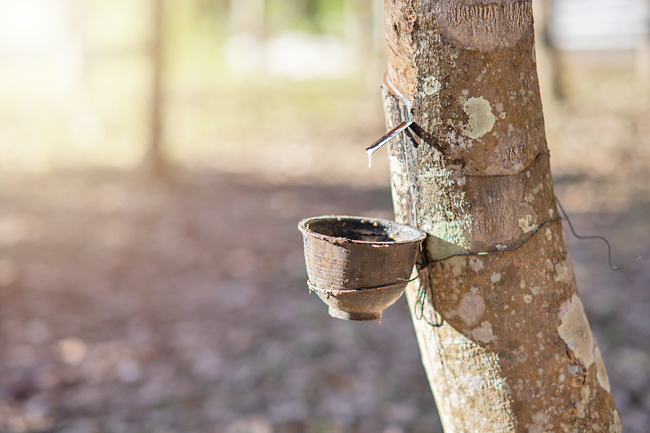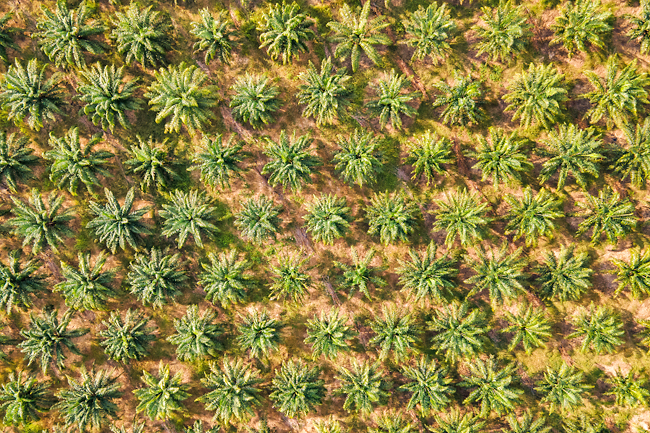KUALA LUMPUR (BERNAMA) – Malaysia’s commodity sector has demonstrated resilience and growth in 2024 despite global headwinds, supported by robust exports and favourable market dynamics.
Palm oil, a key sector for the Malaysian economy, has seen robust growth in 2024.
The yield of fresh fruit bunches (FFB) in the estates sector has improved by 8.1 per cent, increasing to 13.94 tonnes per hectare, up from 12.89 tonnes per hectare in 2023.
According to the Malaysian Palm Oil Board (MPOB), crude palm oil (CPO) prices increased by 5.5 per cent on average, reaching MYR4,047.50 per tonne from January to October 2024, compared to RM3,835.50 per tonne in the same period last year.
The rise was driven by stronger export demand, a weaker ringgit enhancing affordability for buyers, and lower palm oil stock levels, which remained below two million tonnes. Exports of palm oil and palm-based products rose 11.9 per cent year-on-year (y-o-y) to 22.30 million tonnes in the first 10 months of 2024, generating MYR89.39 billion in revenue – a 14.5-per cent increase from MYR78.10 billion last year.
Palm oil accounted for the largest export volume, at 14.05 million tonnes, up by 13.7 per cent compared to 12.36 million tonnes recorded in January-October 2023.
India retained its position as Malaysia’s largest palm oil market, during the period under review, accounting for 2.67 million tonnes or 19.0 per cent of total palm oil exports.


MALAYSIA’S VICTORY OVER THE EU RESTRICTION
Malaysia’s victory against the European Union (EU) over the Delegated Act, which discriminated against palm oil biofuels, marks a significant milestone for the nation’s palm oil industry.
This win exemplifies a well-coordinated effort by Malaysian ministries, organisations, and agencies.
Minister of Plantation and Commodities Datuk Seri Johari Abdul Ghani stated that the decision vindicated Malaysia’s stance and would ensure justice for biodiesel traders and employees.
On January 19, 2021, Malaysia initiated World Trade Organisation (WTO) dispute consultations with the EU over measures affecting palm oil and palm crop-based biofuels.
In its final report, issued on March 5, 2024, the WTO panel concluded that the EU’s Delegated Act restricting palm oil biofuels was discriminatory.
The panel found fault with the EU’s use of indirect land use change (ILUC) as a basis for banning palm oil biofuels and criticised the EU’s approach to notifying and consulting with other economies before implementing new trade measures.
POSTPONEMENT OF EUDR
The EU’s decision on October 16, 2024, to delay implementation of the EU Deforestation Regulation (EUDR) by 12 months provided a much-needed relief for Malaysia’s palm oil sector.
The EUDR, which mandates that commodities sold in the EU must be deforestation-free, poses significant compliance challenges for palm oil producers.
The Malaysian Palm Oil Council (MPOC) welcomed the postponement, noting that it gives stakeholders more time to meet the complex requirements.
Compliance costs are estimated at USD650 million annually, with USD260 million directly impacting smallholders.
Johari announced that the Ministry of Plantation and Commodities (MPIC) will support and help local oil palm smallholders meet the new EUDR deadline on December 30, 2025.
The government will help smallholders comply in four areas, namely deforestation-free, traceability, legitimate land title, and good labour practices, he said.
However, he acknowledged that the labour shortage remains one of the most significant unresolved challenges in Malaysia’s palm oil industry.
The industry continues to rely heavily on manual labour, particularly from foreign workers, for harvesting and infield collection activities.
According to the MPOB, plantation companies currently face a shortage of nearly 38,000 workers, with harvesting and infield collection activities accounting for about 55 per cent of the total shortfall.
“The year 2024 was anticipated to be a beacon of hope for this issue, but it has turned out differently,” MPOB said.
Foreign workers currently account for 76 per cent of the workforce in this sector.
RUBBER
Malaysia’s rubber sector performed strongly in 2024, contributing MYR24.47 billion to export revenue, which marks a 19.9-per cent y-o-y increase, according to the Malaysian Rubber Board (MRB).
This value represents 2.2 per cent of Malaysia’s total export earnings, valued at MYR1.12 billion.
Natural rubber (NR) exports were valued at MYR5.54 billion, reflecting a 29.2-per cent y-o-y increase, mainly driven by higher SMR 20 prices, supported by a tight supply situation and stronger global demand for NR.
Exports of rubber products rose by 15.1 per cent, reaching MYR17.43 billion, which was largely driven by a 24.1-per cent increase in rubber glove exports, which amounted to MYR11.0 billion.
The board said Malaysia’s NR production in the first nine months of 2024 amounted to 268,555 tonnes, 5.8 per cent more than 253,900 tonnes produced in the same period of 2023.
NR production in 2024 is expected to register at 350,000 tonnes, a slight increase compared to the previous year.





